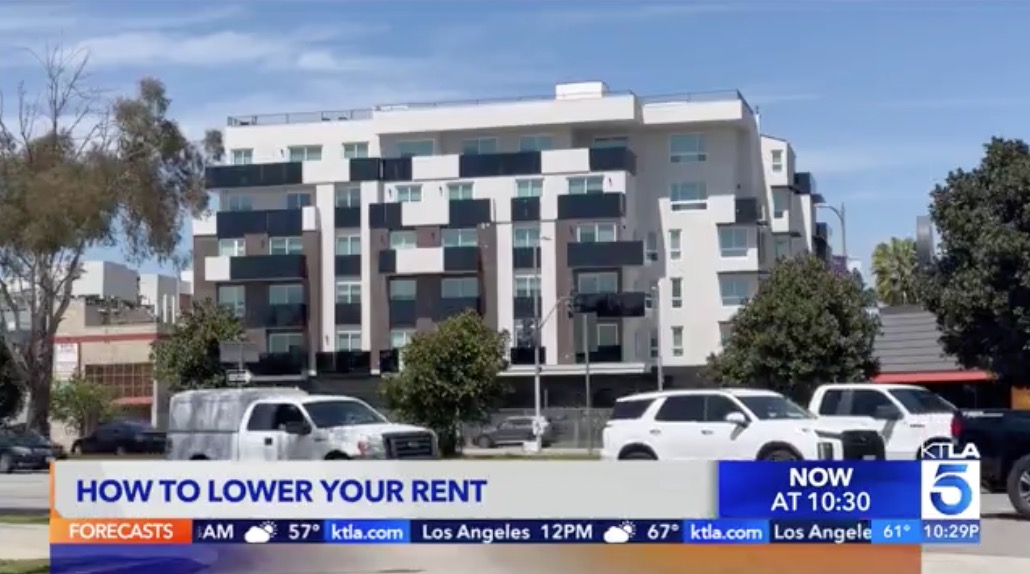A crisis reveals much about humanity. Our values come to the surface as a result of the decisions made by leaders and individuals. Many give of themselves for the benefit of others. On the front lines of a crisis, heroes emerge. First responders and essential workers making certain society doesn’t come to a complete standstill.
In the days of COVID-19, these champions include medical personnel, grocery store employees, and food delivery workers. Each of these warriors find their way home at the end of a day. Some own their homes, others rent them.
While those on the front lines are risking their health, those relegated to “stay at home” face an equally dire challenge. Job loss. Millions of hourly wage earners across the industry are no longer collecting paychecks due to restaurant closures, hotel closures, and store closures. Their places of business have shut down, but their obligations to pay bills haven’t.
One in three Americans is a renter. And, renters need help to get through this economic crisis.
That’s almost 110 million. According to Census Bureau data, the median age of renter households is 40 (vs. 56 for homeowner households) and 33% of rental households have children in them (vs. 30% of homeowner households). No longer are the days where the renter profile consisted of recent graduates. The U.S. has become a nation of renters who represent all walks of life and various age groups. A common thread amongst all remains a lack of financial security as compared to the average homeowner. The household income for an average American renter is just over $37,000 vs. over $73,000 for homeowner households.
As our local, state and national governments enact support systems to assist Americans through this pandemic, many tie back to relief for the homeowner, not the renter. This is shortsighted. Those most physically vulnerable to the Coronavirus are the elderly and persons with underlying health conditions. Those most economically vulnerable – are renters. They are in need of a national strategy for renters.
Almost half of renters are moderately to severely cost burdened by their monthly rent.
In the U.S., the average outlay is $1,050. In the best of times, this amount is hard to manage. Now layer on an emergency. Even more difficult. In fact, the Federal Reserve cited that 40% of Americans are unable to secure even $400 to address unexpected hardships. Now, top that off with a pandemic that will inevitably lead to higher unemployment rates. When renters lose their jobs and cannot find another one immediately, the absence of a financial cushion initiates a terrible cascade of events: eviction, health issues, mental health distress, homelessness and more.
Renters are critical to the engine of our economy. Seventy percent of our GDP comes from consumer spending. Renters punch above their weight within that statistic because as lower income Americans, they spend materially all of their income. If we shut down renter spending because we haven’t acted to help renters address ongoing rental costs in the face of joblessness, the whole country will feel that pain.
Thus far, most housing assistance in this crisis has been directed to homeowners. We cannot emphasize enough that, renters need help, too.
Some emergency measures to support renters have come through in cities like San Jose, Boston, San Diego, and Baltimore through the enactment of eviction bans, as well as Fannie Mae andFreddie Mac extending forbearance to landlords provided that they don’t evict renters.
Unfortunately, these programs are a patchwork across the country and not available to many renters. There is no clear answer to the question of “what next?” What happens after eviction bans expire? Do renters have to pay back rent immediately or risk eviction? In some cities repayment schedules have been envisioned, but they are all relatively short term, so if 50% of renters struggle with the rent in a normal month, how will they be able to repay 2-4 months of back rent in a four month period – even assuming they’ve been able to find work immediately? While some will be able to negotiate their rent many will be left with permanent financial damage.
To make sure we give renters the same support that we give homeowners in this national emergency, we need a national strategy to provide renters with:
- An immediate, national ban on evictions.
- A long term repayment schedule for any missed rent due to joblessness, with repayment guaranteed by the federal government, to match the security that the government already provides to homeowners via Fannie and Freddie loan guarantees.
- A moratorium on reporting failure to pay rent due to joblessness to credit bureaus until the end of the crisis.
Medical professionals, grocery store employees, and delivery drivers are keeping our country safe and fed through this crisis. To them, we owe an undeniable debt of gratitude. Let us be sure to take care of all those not able to work who still have to pay their rent in the coming months.
Eighteen months from now, when we look back at how we fared through this crisis, will our actions show that we valued the wellbeing of both homeowners and renters alike? Or will there be a disparity? Renters need help and we are calling on our elected officials to enact a national strategy for renters, now.
Every American is essential regardless of whether they pay a mortgage, or rent.
In the words of Governor Cuomo of New York, “We’re going to make it because I love New York, and I love New York because New York loves you. New York loves all of you. Black and white and brown and Asian and short and tall and gay and straight. New York loves everyone. That’s why I love New York. It always has, it always will. And at the end of the day, my friends, even if it is a long day, and this is a long day, love wins. Always. And it will win again through this virus. Thank you.”
We are going to make it! Now let’s get our act together and do what is necessary to convey love to all Americans struggling to make ends meet, whether that means paying a mortgage or rent. A home is a home. Period.
Check out this follow up article expanding on our call for a national strategy to help renters!








